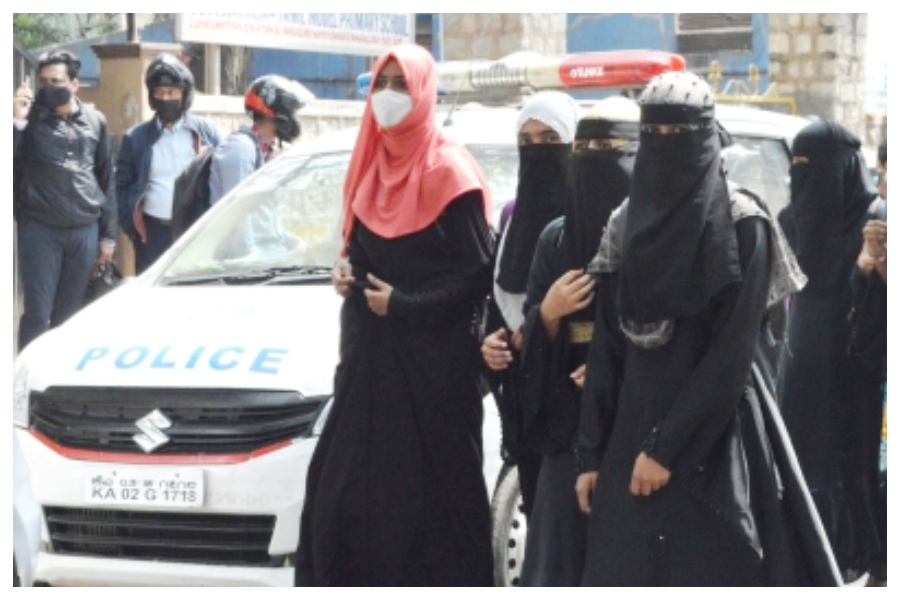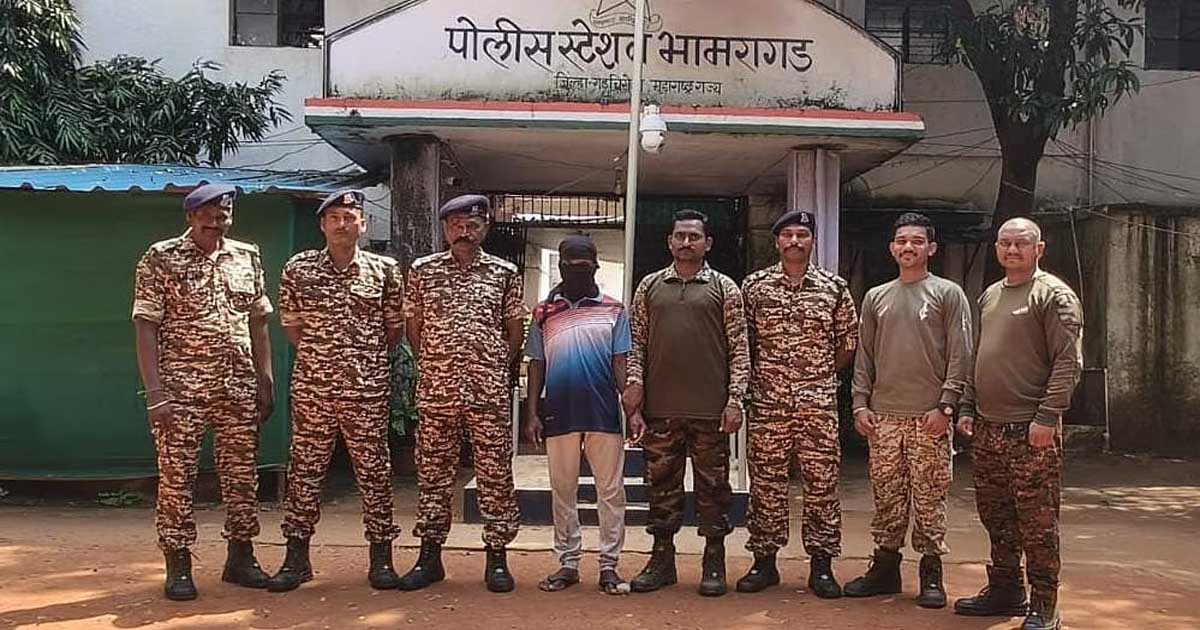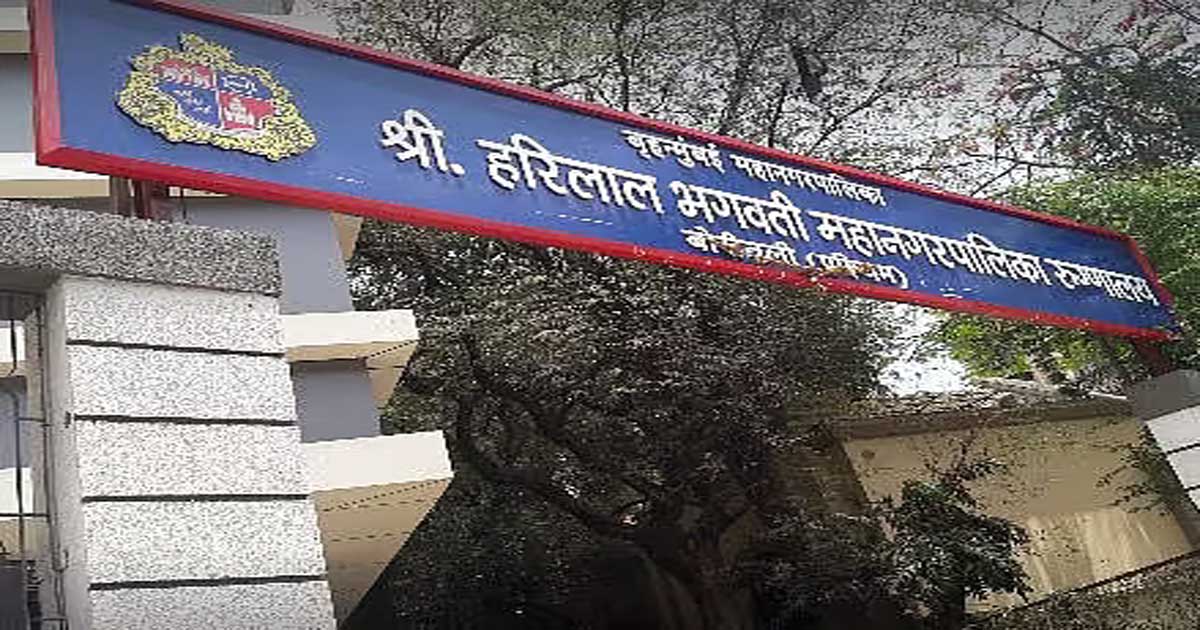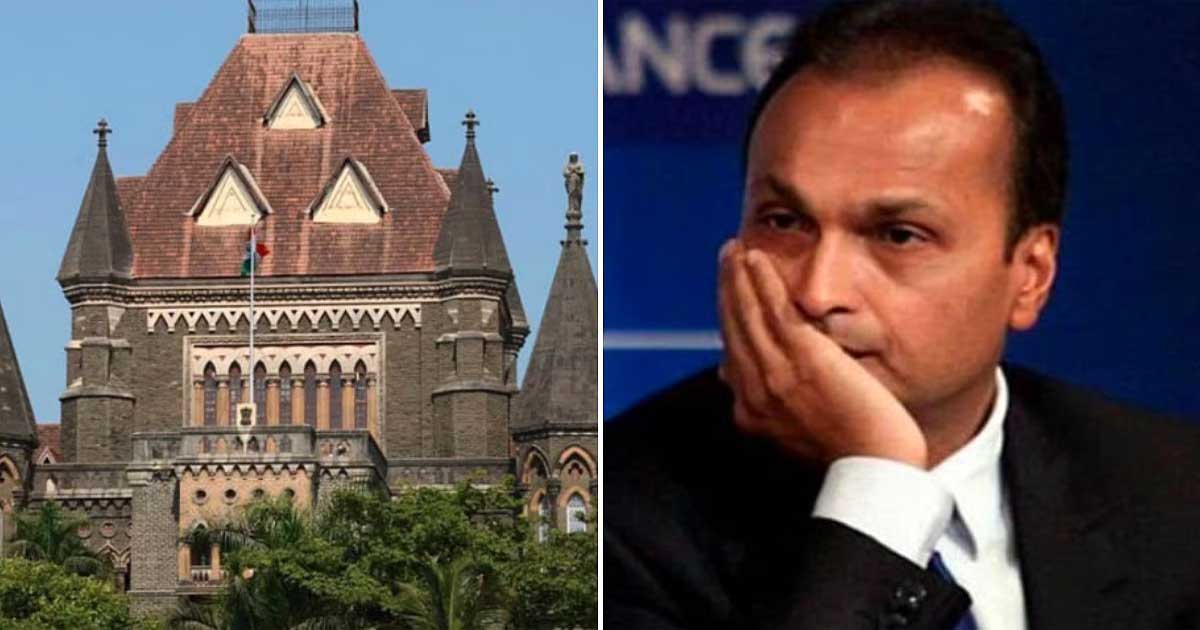National News
Muslim Personal Law Board moves SC against HC verdict on hijab

The All India Muslim Personal Law Board (AIMPLB) has moved the Supreme Court challenging the Karnataka High Court judgment, which upheld the ban on hijab in classrooms after holding that the wearing of headscarves by Muslim women was not an essential religious practice.
The board has moved the top court along with two other petitioners namely, Munisa Bushra and Jaleesa Sultana Yaseen. The plea said the high court judgment, while dismissing the petitions, has proceeded with erroneous reasons to address the issue.
The plea said: “It is a case of direct discrimination against Muslim girls. The High Court has created distinction between the principles laid down in the case of Bijoe Emmanuel by giving different contextual meaning (as a case of discipline) and on the other hand the practice of hijab, is reflected as if it was a case disturbing the entire uniform that too when this minor variation (of covering the head like the Sikh’s do) can be reasonably accommodated within the constitutional norm being part religious practices.”
The plea contended that laying too much emphasis on bringing “uniformity” in the uniform without accommodating a person of one religion ‘to cover her hair with a piece of cloth’ is travesty of justice, and the judgment also ignores the doctrine of reasonable accommodation.
The plea said: “The determination of essentials under the principles of essential religious practice (ERP) had started with the idea of determination of essential religious practice that fell within the complete autonomy of the religious denomination in the matters of deciding as to what rites and ceremonies are essential according to tenets of a religion.”
The plea contended that while dealing with the issue of protection of the fundamental rights, the high court judgment has given completely erroneous interpretation to the concept of intelligible differentia.
The plea added that by grouping all the students in uniformity without acknowledging that such interpretation is not only against the prevailing practices in different parts of the country but also such accommodations are generally available for differently grouped students. “It is completely irrational and against the objective of maintaining diversity as contemplated in the Constitution of India,” it said.
A clutch of pleas has been moved in the apex court challenging the high court decision.
On March 24, the Supreme Court declined to give any specific date to hear a plea challenging the Karnataka High Court order, which dismissed all petitions seeking direction for permission to wear hijab in classrooms.
Another plea filed through advocate Adeel Ahmed and Rahamathullah Kothwal said the high court order creates an unreasonable classification between the non-Muslim female students and the Muslim female students and thereby is in straight violation of the concept of secularism which forms the basic structure of the Indian Constitution. The petitioners are Mohamed Arif Jameel and others.
The plea said: “The impugned order is also in sheer violation of the Article 14, 15, 19, 21 and 25 of the Indian Constitution and also violates the core principles of the International Conventions that India is a signatory to.”
It further added, “Being aggrieved by the impugned Government Order, as it is in violation of Indian constitution, the petitioner had approached the Hon’ble High Court by way of a Public Interest Litigation (PIL) petition challenging the validity of the same.”
Crime
Maharashtra: Gadchiroli Police Destroy Maoist Monuments, Arrest Naxal Supporter During Anti-Maoist Operations

Gadchiroli: Police recently destroyed two Maoist-erected monuments and arrested a Naxal supporter actively involved in violent activities against security forces. Officials said both actions were part of ongoing anti-Maoist operations aimed at eliminating fear from local communities.
On September 30, a police team from Poste Katezari, along with SRPF personnel, was conducting a search operation in the Katezari and Marma forest areas of Mauja Katezari. During the operation, they found two Maoist monuments, erected two to three years ago, intended to spread fear and show Maoist presence in the region.
After inspection by the bomb disposal team, both monuments were demolished and destroyed. Police said that, with the cooperation of local citizens, trees were planted at the site as a symbol of peace.
Superintendent of Police, Gadchiroli, Nilotpal, said: “The Gadchiroli police is trying to free citizens from the terror of the Maoists. Such memorials have no place in society, and people are urged not to participate in such illegal constructions.”
In a separate incident on September 29, while security forces were conducting an anti-Maoist operation in the Bhamragad area, they received information about a suspicious person allegedly conducting reconnaissance of security forces.
The man was detained and later identified as Sainu alias Sannu Amlu Mattami (38), a resident of Poyarkothi, Bhamragad. Investigations revealed he was a staunch Naxal supporter involved in violent activities, including an encounter between police and Maoists in the Koparshi-Phulnar jungle area on August 27, 2025.
Mattami was arrested on September 30.
According to officials, since January 2022, Gadchiroli police have arrested a total of 110 Maoists, a result of sustained anti-Maoist operations in the district.
National News
Mumbai: ₹500-Crore Bhagwati Hospital In Borivali To Open By December After Delays

Mumbai: After years of anticipation and multiple setbacks, the Brihanmumbai Municipal Corporation’s (BMC) Shri Harilal Bhagwati Hospital in Borivali is finally nearing completion. The ₹500-crore super specialty hospital will be ready by November 15 and is expected to open its doors to patients by December, bringing long-awaited relief to residents of the city’s western suburbs.
The hospital’s redevelopment has been a prolonged process marked by repeated delays. The project was planned in two phases. The first phase, launched in 2009, became partially operational in 2016 with 110 beds, though it missed its original deadline by two years. The second phase, which began in August 2019, was scheduled for completion by October 2022. However, the deadline stretched nearly three years, pushing the project’s completion to November 2025.
Officials have cited several factors for the delay, including lapses by contractors, administrative hurdles, and rising costs. The COVID-19 pandemic further slowed progress as manpower and resources had to be diverted toward emergency healthcare. Additionally, project costs escalated due to design changes aimed at transforming Bhagwati into a modern super specialty hospital, equipped with facilities such as a Cath Lab, modular operation theatres, and advanced diagnostic units.
Once fully functional, the hospital will have 373 beds, with plans to eventually expand to 490 beds. It is expected to significantly reduce the patient burden on major civic hospitals such as Cooper, KEM, and Nair, while also serving patients from Palghar and Dahanu.
“The full-scale operation of Bhagwati Hospital will help decentralize healthcare in Mumbai and ease pressure on central civic hospitals,” said BMC Additional Commissioner (Health) Sharad Ughade.
Departments including Medicine, Surgery, Orthopedics, Pediatrics, and Ophthalmology have already been revived and reopened. In the coming months, super specialty services in Nephrology, Cardiology, and Neurology will also be introduced, alongside a state-of-the-art Cath Lab.
For the rapidly growing western suburbs, the opening of Bhagwati Hospital marks a vital step in improving access to advanced healthcare closer to home, ending years of dependence on distant hospitals for specialized treatment.
National News
Bombay High Court Upholds SBI Decision To Declare Anil Ambani’s Account As Fraud

The Bombay High Court on Friday refused to quash the order passed by the State Bank of India (SBI), which had classified the loan account of Reliance Communications and its chairman, Anil Ambani, as ‘fraud’.
The classification was made on June 13, 2025, under the Reserve Bank of India’s Master Directions on Fraud Risk Management and SBI’s internal policies.
Ambani had challenged the move, arguing that the bank had not followed principles of natural justice. He claimed that he was not given an opportunity to be heard before the account was flagged as fraudulent. He also stated that some crucial material used in the classification was initially withheld and only provided to him after a delay of six months.
The High Court, however, upheld SBI’s decision, noting that the classification was in line with regulatory guidelines.
-

 Crime3 years ago
Crime3 years agoClass 10 student jumps to death in Jaipur
-

 Maharashtra12 months ago
Maharashtra12 months agoMumbai Local Train Update: Central Railway’s New Timetable Comes Into Effect; Check Full List Of Revised Timings & Stations
-

 Maharashtra12 months ago
Maharashtra12 months agoMumbai To Go Toll-Free Tonight! Maharashtra Govt Announces Complete Toll Waiver For Light Motor Vehicles At All 5 Entry Points Of City
-

 Maharashtra1 year ago
Maharashtra1 year agoFalse photo of Imtiaz Jaleel’s rally, exposing the fooling conspiracy
-

 National News12 months ago
National News12 months agoMinistry of Railways rolls out Special Drive 4.0 with focus on digitisation, cleanliness, inclusiveness and grievance redressal
-

 Maharashtra11 months ago
Maharashtra11 months agoMaharashtra Elections 2024: Mumbai Metro & BEST Services Extended Till Midnight On Voting Day
-

 National News1 year ago
National News1 year agoJ&K: 4 Jawans Killed, 28 Injured After Bus Carrying BSF Personnel For Poll Duty Falls Into Gorge In Budgam; Terrifying Visuals Surface
-

 Crime12 months ago
Crime12 months agoBaba Siddique Murder: Mumbai Police Unable To Get Lawrence Bishnoi Custody Due To Home Ministry Order, Says Report












